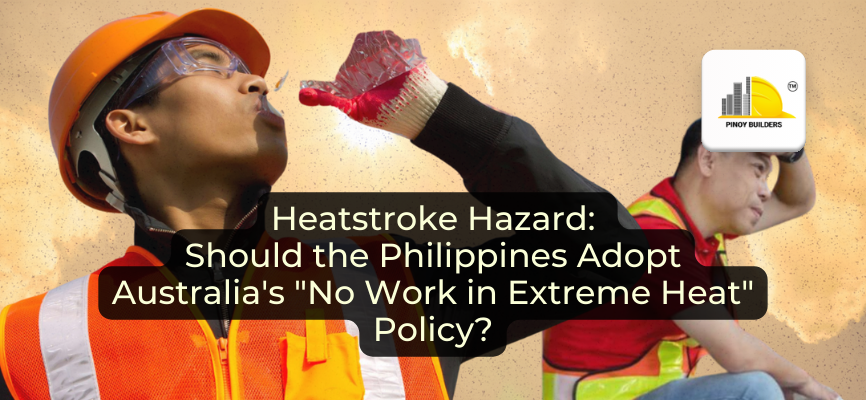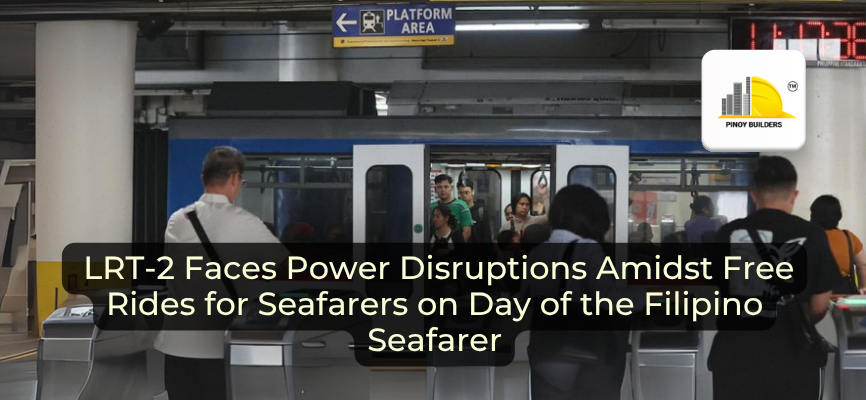As the Philippines experiences record-breaking high temperatures, many Filipino workers are left to face an alarming possibility of acquiring or developing heat-related illnesses. In 2023 alone, the Department of Health (DOH) reported 513 cases of heat-related illnesses. This year, the numbers have risen by 30%, recording 77 heat-related illnesses and 6 deaths during the second quarter of the year.
Due to extreme global climate change, many governments are faced with the urgent need to design preventive measures to protect the safety of their residents; such countries include Australia, which often experiences arid temperatures that can negatively affect health, especially labor workers.

Now, the Philippines is beginning to experience a similar situation due to the extreme heat season. Because of this, many Filipinos are now hoping that the Philippines will adopt the same policies. In this article, we will discuss the dangers of extreme heat, the basics of Australia’s “No Work in Extreme Heat” policy, and how it can benefit labor workers. We will also explore whether the Philippines must adopt a similar policy to safeguard workers’ health.
Heatstroke Hazard: Should the Philippines Adopt Australia’s “No Work in Extreme Heat” Policy?

There are many types of heat-related illnesses. This type of illness occurs when the body is exposed to excessive heat and cannot cool down effectively, mainly due to other factors like lack of ventilation in an area or the absence of shade relief. Heat-related illnesses range from mild to severe—which can be life-threatening. Below is a list of heat-related illnesses.
- Dehydration
- Heat Rash (prickly heat)
- Heat Cramps
- Heat Exhaustion
- Heat Syncope (fainting or dizziness)
- Heat Edema
- Heat Stroke
- Heat Exhaustion Leading to Heat Stroke
Some symptoms of heat-related illnesses also include an altered mental state, which begs the question: Should workers have the right to leave work during extreme heat conditions?
Australia’s “No Work in Extreme Heat” Policy
According to the Government of South Australia’s website, there is no specific ‘stop work’ temperature. However, employers are required to provide a safe work environment for their employees, and this includes halting operations during inclement weather. Australia’s no-work policy during extreme heat includes regular monitoring of weather conditions, worker health education, as well as provision of cooling facilities. The benefits are clear: reduced heat-related illnesses, increased worker safety, and maintained productivity in the workplace.
Should the Philippines Adopt Australia’s “No Work in Extreme Heat” Policy?
Both Australia and the Philippines experience tropical and arid climate zones with seasonal temperature peaks. But even so, Australia has a more established workplace safety regulation system. Not to mention that its economy can better absorb the impact of heat-related work stoppages.
However, the Philippines simply does not have the same advantages. With its dense population and significant informal workforce, the country faces unique challenges in adopting similar policies. But even without being in the same situation as Australia, there is no debate that Filipino workers, and any other worker worldwide, should have the right to abstain from work responsibilities during certain weather conditions that can put their health at risk.
Implementing a “No Work in Extreme Heat” policy in the Philippines could significantly improve the health and safety of workers. This particularly includes those in high-risk outdoor jobs, such as street cleaners, security guards, and construction workers. Reducing heat-related illnesses would save lives and result in long-term health benefits. Economically, healthier workers mean lower healthcare costs and higher productivity. Improved worker morale and efficiency could also boost overall economic performance.
In the Philippines, DOLE Advisory No., 17-2022 emphasized the right to skip work during extreme weather conditions such as extreme heat. However, this policy comes without pay, unless the employee decides to avail a paid leave if they are empowered by their employer. The reality is that the same goes with Australia’s “No Work in Extreme Heat” policy, except that Australian laws require an employer to provide relief and alternative work for their employees before the work stoppage. Employers may provide financial or other aid to workers if they choose to include it in their contracts.
Avoiding The Hazards of Heatstroke in the Workplace
Addressing the hazards of heatstroke in the workplace is essential for protecting workers in the Philippines. By adopting and implementing a policy similar to Australia’s could result in significant health and economic benefits both for the workers and employers. With climate change making extreme heat more common, safer workplaces and championing worker health is both a moral and proactive imperative that all governments in all countries should adopt.
References
KPMG. (2024, February 5). Navigating extreme heat in Australia. Navigating extreme heat in Australia. Retrieved May 17, 2024, from https://assets.kpmg.com/content/dam/kpmg/au/pdf/2023/navigating-extreme-heat-in-australia.pdf
McManus, S. (n.d.). Your Rights Working in Heat. Australian Unions. Retrieved May 17, 2024, from https://www.australianunions.org.au/factsheet/your-rights-working-in-heat/
Positive HR. (n.d.). Extreme hot weather – do we pay employees who can’t work? Positive HR. Retrieved May 17, 2024, from https://positivehr.com.au/extreme-hot-weather-do-we-pay-employees-who-cant-work/
SafeWorkSA. (n.d.). At what temperature can you legally stop work? SafeWorkSA. Retrieved May 17, 2024, from https://www.safework.sa.gov.au/news-and-alerts/news/news/2022/what-temperature-can-you-legally-stop-working-in-australia
Tan, J. (2024, April 9). The Philippines clarifies employee rights during heatwaves | HRM Asia. HRM Asia. Retrieved May 17, 2024, from https://hrmasia.com/the-philippines-clarifies-employee-rights-during-heatwaves/










